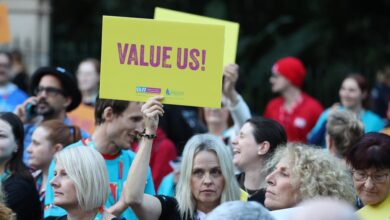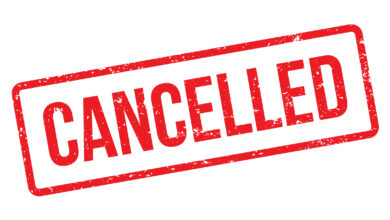Outback cancer care in the air
The Royal Flying Doctor Service, in partnership with the McGrath Foundation, has appointed its first breast cancer nurse. Linda Belardi reports.
Jo Beven’s patients live in an area that takes in three states - about 640,000 square kilometers. As part of a roving healthcare team, she provides care and support to some of Australia’s most remote communities.
During her first weeks on the job she travelled to Tibooburra, population 150, in far west NSW. Beven stood in awe at the isolated township, 330 kilometres from Broken Hill.
Known as the capital of the “corner country”, Tibooburra is near the Queensland and South Australian borders. With an arid, desert climate, it is the hottest place in NSW. “It’s quite overwhelming. You just sit and wonder how some of these towns got there. You really feel as if you are in the middle of nowhere,” says Beven.
The outback community has access to a small district hospital which operates as a primary healthcare clinic and is staffed by two registered nurses. Every week the RFDS provides an outreach medical service with a GP flown in to support the needs of the community. Visiting specialists such as a dentist and a women’s, child and family health nurse are also available throughout the year.
Beven, who commenced in December, is the newest member of the primary healthcare team and the first breast care nurse to join the well-known aeromedical service. In addition to its emergency and retrieval work, the RFDS operates a network of mobile primary health clinics that travel to rural and remote areas.
Beven has extensive experience in oncology and will be based at the corporate headquarters for the south-eastern section in Broken Hill. She will board a King Air B200 to access the region’s 18 “fly around clinics”.
She will join a team of eight doctors, six flight nurses, a dentist and five pilots servicing the region, which encompasses far-west NSW, south-west QLD and eastern and northern South Australia. The south-eastern section is one of four operational zones of the RFDS, which provides regular clinic services to remote locations in Australia. In addition to rural home visits, she will also work with women and families living in Broken Hill, as well as liaising with local breast cancer support groups.
“Getting a diagnosis of breast cancer or any type of cancer is terrifying and your imagination can play really nasty tricks on you. I’d like to think that I’m there to rationalise fears for women, to listen and be a shoulder to cry on,” Beven says of her new appointment, which emerged from a partnership between the McGrath Foundation and the RFDS.
Forming part of a growing network of 71 McGrath breast care nurses, Beven will support women and their families through the journey of diagnosis, treatment and post-treatment care.
“I hope to educate women about what they can expect from their chemotherapy, radiotherapy and surgery. I think women like knowing that there is somebody in town who knows all the meanings to the big long words and can explain aspects of their treatment process. A significant part of my role will also involve providing psychosocial support to women so that they can cope both physically and emotionally with a cancer diagnosis.
“Often women feel that they have to put on a brave face and be strong for their families but they don’t have to be emotionally strong for the nurse. We pick up the pieces a little bit and help them to be strong for their families.”
Beven says knowing she can make a difference to outback communities where resources are scarce attracted her to the role. She worked for 14 years as a registered nurse at Broken Hill Hospital before moving into oncology in 2000.
In the past, rural women diagnosed with cancer have only had access to their oncologist or nurse post-treatment via phone. Now Beven’s position makes it possible for women and their families to receive ongoing face-to-face consultations once they have returned to their homes in the bush.
“It’s a largely male dominated area out in the bush and to have another female face to talk to, and particularly to talk girlie things with, can be very important. It’s also something I enjoy and get a lot out of,” she says.
As part of her association with the McGrath Foundation, Beven will also be involved in promoting breast awareness, particularly among young women. While introducing herself to local communities, she has been encouraging awareness of mammogram screening and the importance of self-examination.
Improving breast cancer screening among Aboriginal communities in her catchment area is a long-term priority. “It can be very difficult to break into these areas. You have to be very culturally sensitive. I plan to buddy up with the women’s health nurse whenever she carries out her promotional work for pap screenings to see if we can get a few mammograms done for the local Aboriginal women. It’s a little more complicated but it’s not insurmountable.”
The population of Wilcannia, a small town on the Darling River in north-west NSW, is more than 50 per cent indigenous, and Menindee further south also has a high Aboriginal population. Over the next few months, Beven, who works part-time, will be visiting all of the 18 clinic sites to get a feel for how they operate and to introduce herself to the local community and health professionals. She said one of the challenges will be making sure local GPs understand the value of her role and how she can support local women through their treatment and recovery.
While many clinics have some health equipment on site, other community health consultations are carried out on rural properties or in local halls with few facilities. These bush clinics are as much an important social gathering for the town as they are about health visits.
While her current patient load is small, the RFDS will monitor her activities with the view to potentially employing another part-time breast care nurse if demand is strong. Patients can refer themselves to the service or be referred by local GPs or other breast care nurses based in metropolitan areas.
“I don’t expect I’ll be the last breast care nurse as other regions of the Royal Flying Doctor Service may take a nurse on in the future,” Beven says.
Dr Anne Wakatama, Chief Medical Officer for the RFDS, south-eastern section, welcomed the appointment. “Jo Beven will help to empower families through accurate and timely information and referral services during what is naturally a very stressful time,” she said.
Beven’s position is funded by corporate sponsor, Elders, who has donated more than $330,000 to the McGrath Foundation in the past three years.
Email: [email protected]





